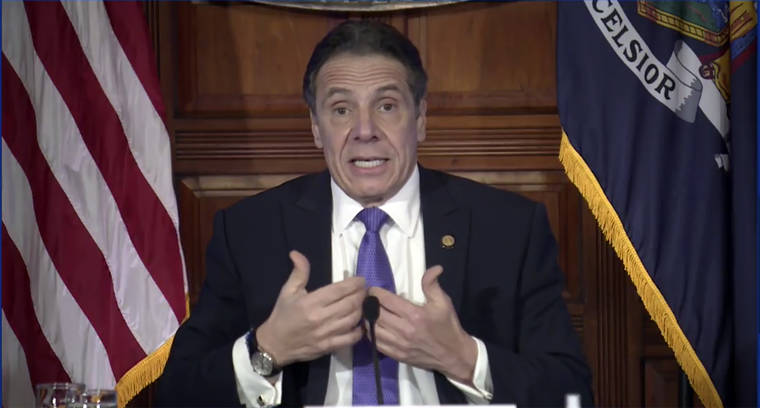ALBANY, N.Y. — In his first public remarks since a sexual harassment scandal enveloped his administration, Gov. Andrew Cuomo said Wednesday that he was embarrassed by his actions and apologized, but said that he would not resign from office.
“I now understand that I acted in a way that made people feel uncomfortable,” he said. “It was unintentional, and I truly and deeply apologize for it.”
He stressed that he “never touched anyone inappropriately.”
Cuomo expressed contrition, saying he has “learned from what has been an incredibly difficult situation for me as well as other people.”
Few, if any, top officials have vociferously defended Cuomo, with most Democrats repeatedly calling for an independent investigation into the claims, now to be overseen by the state attorney general, Letitia James.
The governor, a third-term Democrat, had previously sought to explain that some of his past remarks and questions to staff had been misconstrued, and “may have been insensitive or too personal.”
“I acknowledge some of the things I have said have been misinterpreted as an unwanted flirtation,” Cuomo said in a statement Sunday. “To the extent anyone felt that way, I am truly sorry about that.”
That statement fell short for many, including Charlotte Bennett, a 25-year-old former aide of Cuomo who told The New York Times that the governor asked her a series of sexually charged questions during a private meeting last June.
On Monday, she characterized the governor’s initial apology as a craven attempt to avoid responsibility. Bennett on Wednesday was similarly unimpressed by the governor.
“The governor’s press conference was full of falsehoods and inaccurate information, and New Yorkers deserve better,” said Debra Katz, a prominent harassment lawyer who is representing Bennett.
The turmoil in Albany began last week when Lindsey Boylan, who worked in the Cuomo administration from 2015 to 2018, published an essay detailing a series of disturbing interactions with Cuomo.
On Monday, Anna Ruch, a 33-year-old who served in the Obama administration, described an unwanted advance from the governor at a wedding.
© 2021 The New York Times Company



